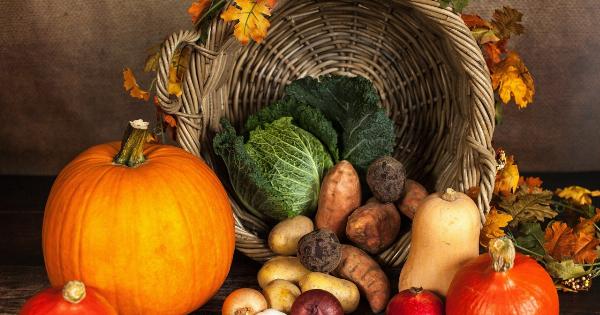Pregnancy is an exciting and challenging time for women. It is during this phase that a woman’s body goes through numerous changes, and in response, the need for essential nutrients increases to support the growing fetus.
During pregnancy, it is crucial for a woman to eat a well-balanced diet that provides the right amount of nutrients. Yet, the ideal amount of food for pregnant women can be tricky to determine.
Caloric Requirements
During pregnancy, women require about 300 to 500 extra calories per day to support the growing fetus. The total number of calories that a woman needs depends on her pre-pregnancy weight, height, activity level, and stage of pregnancy.
Here is a rough estimate of the number of calories a pregnant woman needs based on her pre-pregnancy weight:.
- Underweight: 2,500 to 2,800 calories per day
- Normal weight: 2,200 to 2,500 calories per day
- Overweight: 1,900 to 2,200 calories per day
- Obese: 1,500 to 1,900 calories per day
Protein
Protein is an essential nutrient during pregnancy as it is required for the development of the fetus’s organs, muscles, and tissues.
During pregnancy, a woman should aim to consume 75 to 100 grams of protein per day, depending on her weight and stage of pregnancy.
Carbohydrates
Carbohydrates are a crucial source of energy during pregnancy.
However, the type and amount of carbohydrates that a pregnant woman should consume depend on her weight, blood sugar levels, and any pre-existing medical conditions such as gestational diabetes. A woman should aim to consume complex carbohydrates found in whole grains, fruits, and vegetables. She should avoid consuming simple sugars found in processed foods and drinks.
Fruits and Vegetables
Fruits and vegetables are excellent sources of essential vitamins, minerals, and fiber.
During pregnancy, a woman should aim to consume five to nine servings of fruits and vegetables per day to ensure that she is getting all the essential nutrients necessary for the developing fetus. Eating a variety of fruits and vegetables is crucial as different types of fruits and vegetables provide different nutrients.
Calcium
Calcium is essential for the development of the fetus’s bones and teeth. During pregnancy, a woman should aim to consume 1,000 to 1,300 milligrams of calcium per day, depending on her age and stage of pregnancy.
Good sources of calcium include milk, cheese, yogurt, and dark leafy greens such as kale and spinach.
Iron
Iron is important during pregnancy as it helps the body make hemoglobin, a protein in red blood cells that carries oxygen throughout the body. A pregnant woman should aim to consume 27 milligrams of iron per day.
Good sources of iron include lean red meat, poultry, fish, beans, lentils, and dark leafy greens such as spinach.
Fats
Fats are essential during pregnancy as they provide energy, support cell growth, and help the body absorb vitamins. However, a pregnant woman should aim to consume healthy fats found in foods such as nuts, seeds, avocado, and fatty fish like salmon.
She should avoid consuming saturated and trans fats found in processed foods such as cakes, cookies, and fried foods.
Salt
Excess salt intake during pregnancy can contribute to high blood pressure. Therefore, it is essential to watch the amount of salt consumed during meals. A pregnant woman should aim to consume no more than 2,300 milligrams of salt per day.
Fluids
During pregnancy, it is essential to stay hydrated as dehydration can lead to complications such as preterm labor, neural tube defects, and low amniotic fluid levels. A pregnant woman should aim to drink at least eight to ten glasses of water per day.
She should also consume fluids from fruits, vegetables, and soups.





























